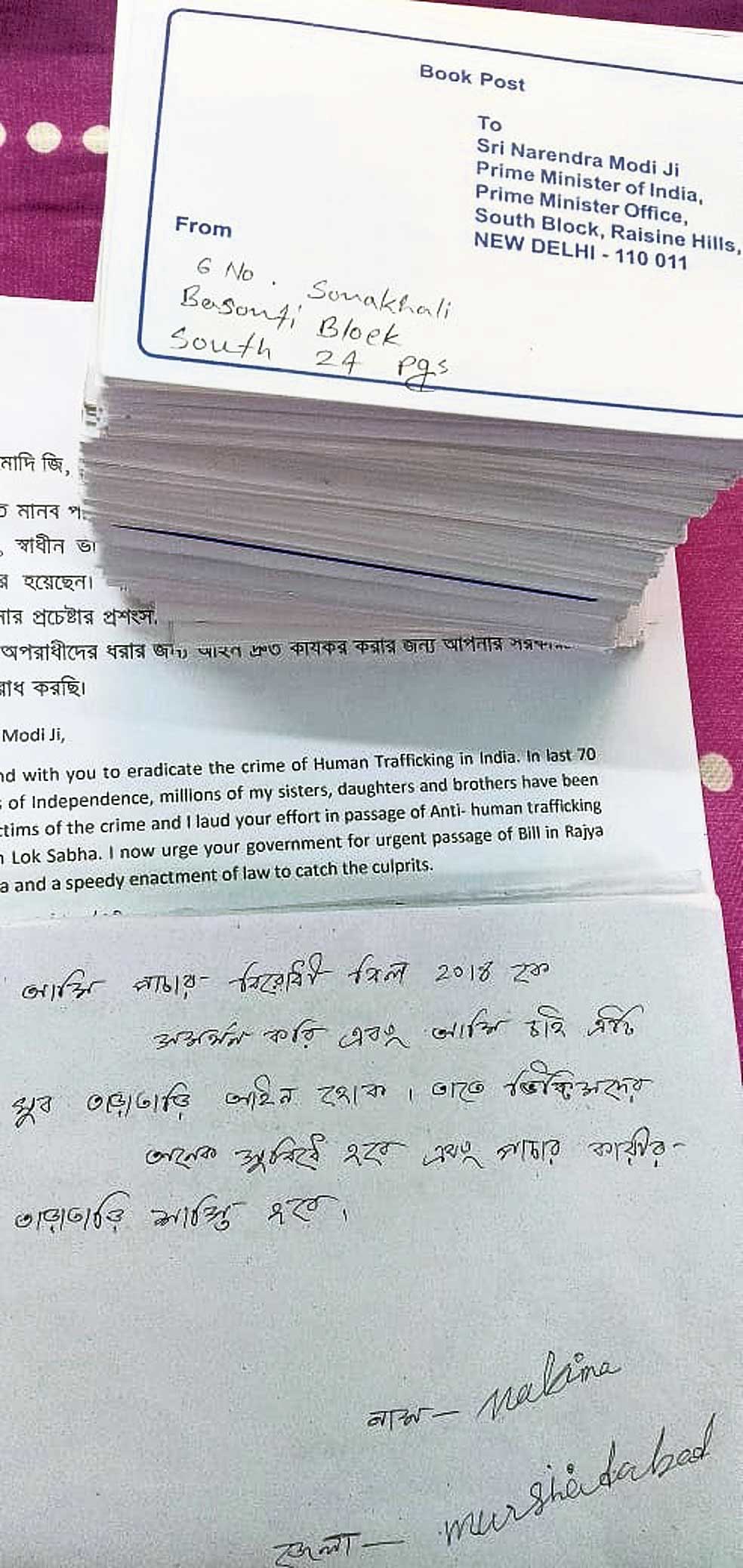Trafficking and acid attack survivors from across Bengal sent 2,000 postcards to Prime Minister Narendra Modi on Tuesday, requesting him to ensure that the anti-human trafficking bill is passed during the winter session of the Rajya Sabha.
The postcards mailed to the Prime Minister’s Office in South Block are part of a signature campaign anchored by Bandhan Mukti, a group of more than 400 trafficking and acid attack survivors from South and North 24-Parganas, West and East Midnapore, Purulia, Howrah, Hooghly, Nadia and pockets of Calcutta.
The Trafficking of Persons (Prevention, Protection and Rehabilitation) Bill, 2018, was tabled and passed in the Lok Sabha in July. The bill, which seeks to bring bonded labour and the use of hormones and psychotropic substances on victims within the ambit of trafficking, can become a law after it clears the Rajya Sabha’s scrutiny and is sent to the President for his assent.
According to statistics of the National Crime Records Bureau, 27.8 per cent of the human trafficking cases registered across the country till 2016 had reached the stage of conviction. In Bengal, the state with the highest number of human trafficking cases in 2016, the conviction rate was 9.8 per cent.
The bill provides for faster disposal of cases and stringent punishment for aggravated trafficking, human trafficking for bonded labour and use of chemicals and hormones for exploitation. A rehabilitation fund for survivors is among the main provisions.
According to people involved in the rescue and rehabilitation of trafficking survivors, some of the key points in the bill are not covered by the existing laws. “The bill is a comprehensive document and victim-centric. It talks about invoking stringent sections of the law to punish traffickers, besides prioritising cases for fast disposal. The present rate of disposal and conviction is very slow,” said Subhasree Raptan, programme coordinator of Goranbose Gram Bikash Kendra in South 24-Parganas.
Bappaditya Mukherjee of Prantakatha, an NGO, said the bill had taken a “rights-based approach” towards survivors. “There is currently no rehabilitation package that a survivor can claim. She is made to run from pillar to post, begging for compensation.”
The bill recommends a minimum punishment of 10 years’ imprisonment for the offence of human trafficking.











